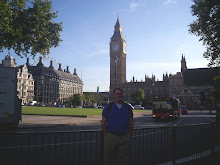Two news stories about our country's wars in the Middle East have garnered a lot of attention. The
first story involves wikileaks, a website that publishes confidential government information, releasing a video that shows U.S. military helicopter crew members killing civilians; including a reporter from Rueters. There is a lot of controversy surrounding the exact nature of the video and the context around which the helicopter attack occurred. The U.S. military initially claimed that all the civilians were insurgents but now there a lot people are alleging cover-up.
Which brings us to the second story. General Stanley McChrystal, the U.S. Commander in Afghanistan, admitted that U.S. soldiers have killed :an amazing number of people who were not threats." A soldier under his command asked Gen. McChrystal a question about problems with escalations of force and the general responded,
"I do want to say something that everyone understands. We really ask a lot of our young service people out on the checkpoints because there's danger, they're asked to make very rapid decisions in often very unclear situations. However, to my knowledge, in the nine-plus months I've been here, not a single case where we have engaged in an escalation of force incident and hurt someone has it turned out that the vehicle had a suicide bomb or weapons in it and, in many cases, had families in it. That doesn't mean I'm criticizing the people who are executing. I'm just giving you perspective. We've shot an amazing number of people and killed a number and, to my knowledge, none has proven to have been a real threat to the force."
There is, I believe, a conspiracy and General McChrystal gets at the reason for it in his reply. The U.S., and other western nations, put in a lot of effort to give the impression that there are rules and order to what happens in war. The reality is quite different and the conspiracy is the effort to hide that reality. You cannot make orderly what is by definition disorderly, chaotic, brutal and inhumane. The conspiracy is in place so that people who don't know better, and quite a few that do, will continue to support the war effort thinking that the means and the ends are more nobler than they really are.
